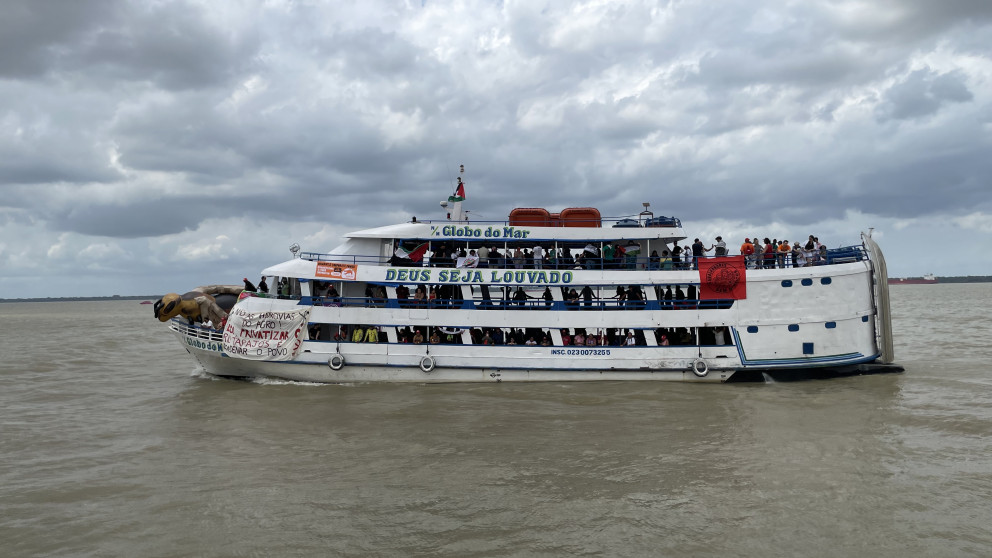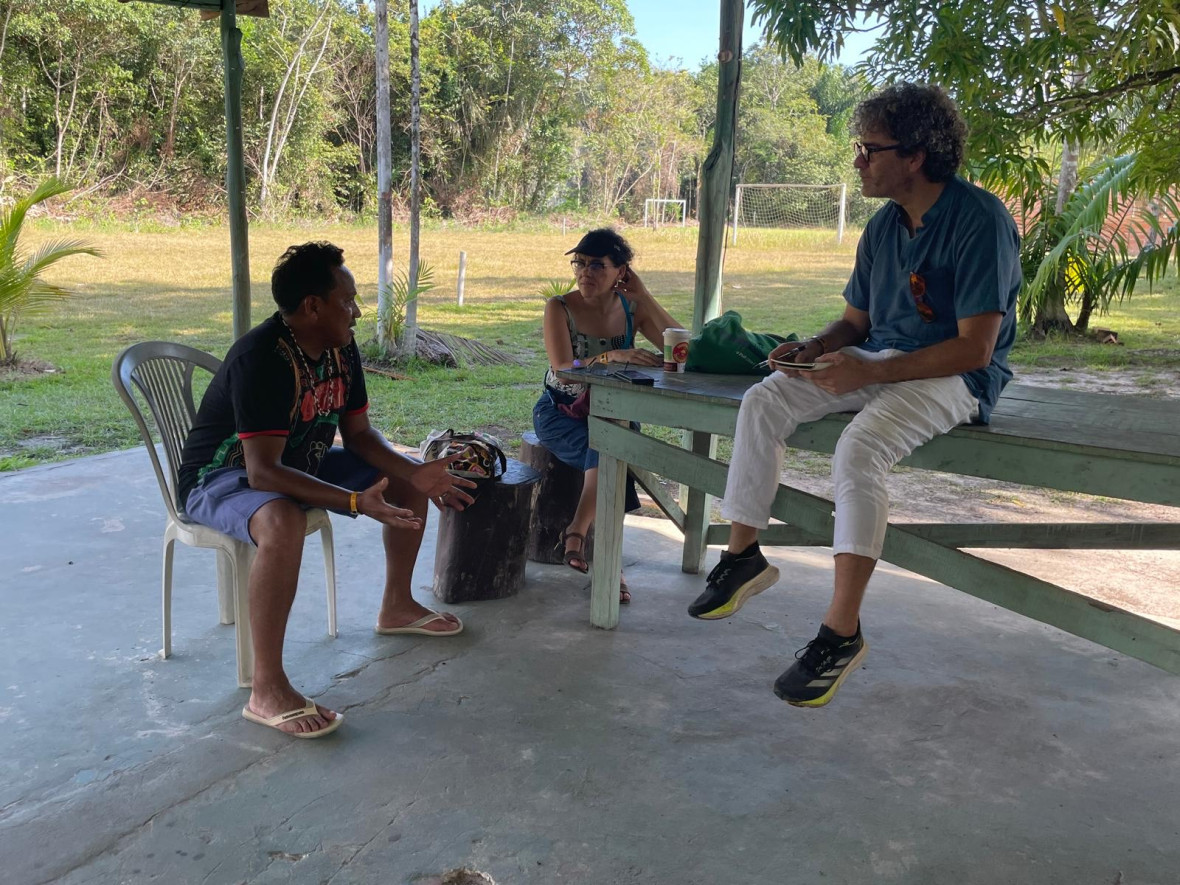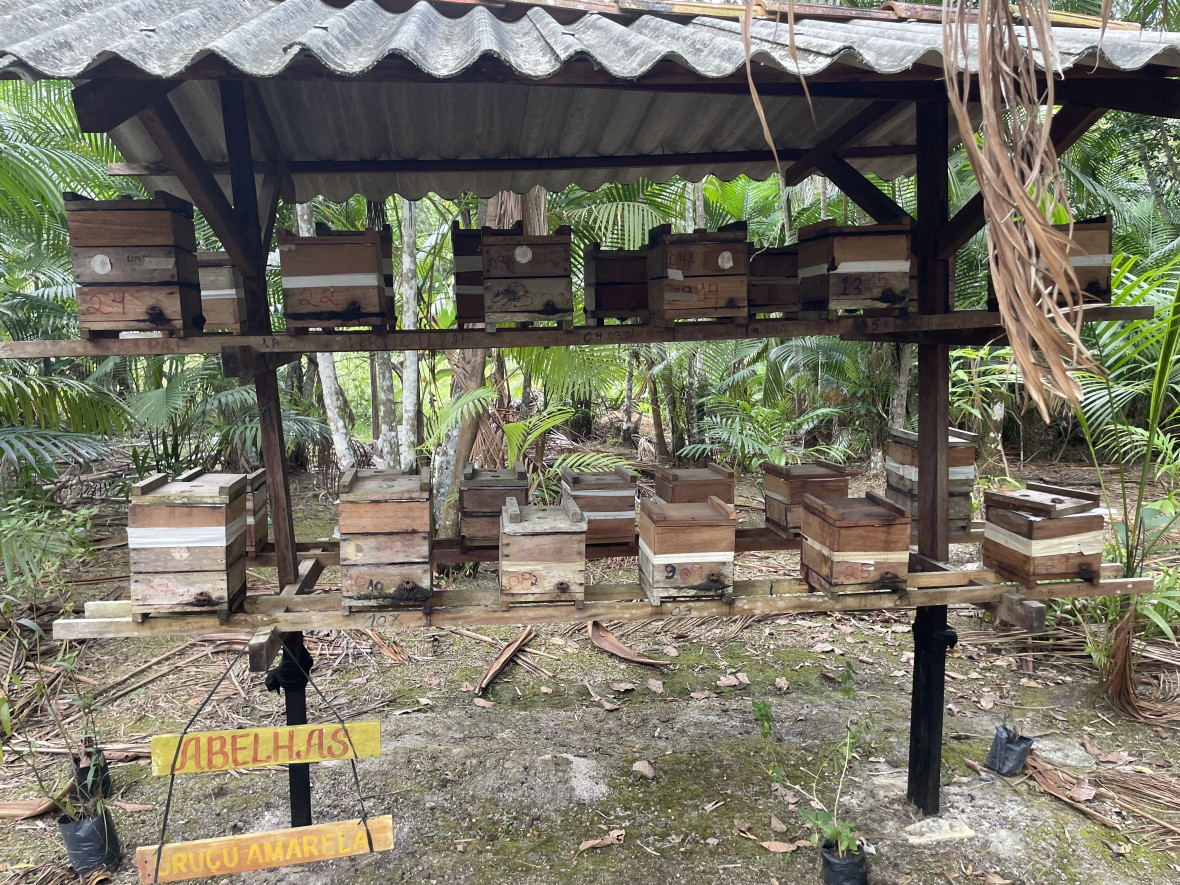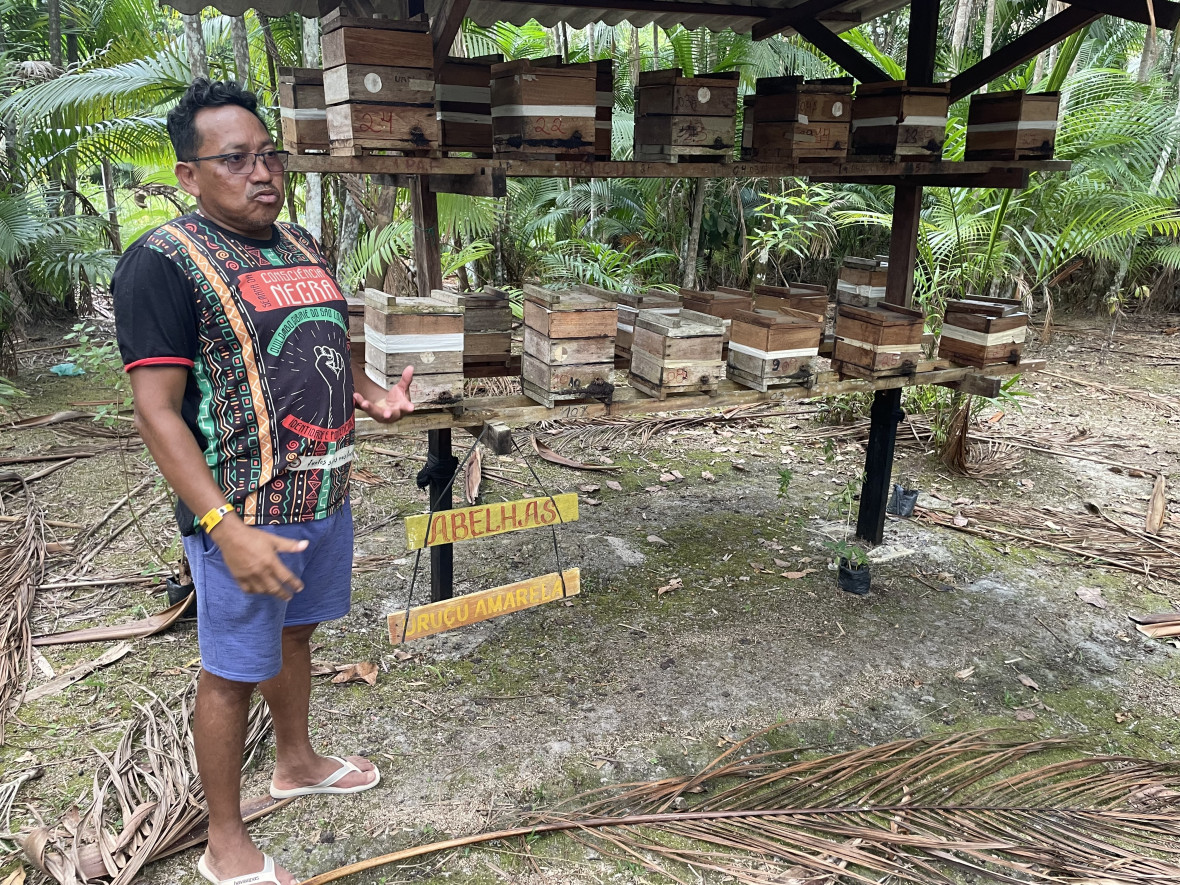Climate Justice Begins on the Riverbank
13.11.2025

Situated in Barcarena, a small city on the banks of the Murucupi River, the Quilombola and Indigenous community of Gibriés de São Lourenço sits at the heart of a profound transformation. Here, the landscape tells a story that echoes across the Amazon Basin. Forty years ago, a modest riverside community of a few thousand people occupied the site. Today, tens of thousands of people live here and the city skyline is dominated by chimneys, silos, and ships’ stacks — the unmistakable symbols of an extractive model that continues to shape the land and the lives of its inhabitants.
The area hosts a cluster of heavy industry: the Alunorte bauxite refinery, the Albrás aluminium smelter, and the massive CDP Port Complex, through which ships export soya, meat, and minerals to global markets. The constant passage of cargo ships — with often 30 or more vessels waiting to load — has altered the rhythms of the river and the lives of its people. Barcarena’s industrialisation began in the late 1970s when workers like Maurício — a taxi driver from Minas Gerais who planned “to stay six months and ended up staying six years” — helped build the aluminium plants. These industries promised development and prosperity, but what they left behind was pollution, inequality, and a deep rupture in the community’s relationship with the river.
“The water is not the same anymore,” says veteran community leader Válter Santos, now in his seventies. “Thirty years ago, it was just the river and the ribeirinhos (riverside dwellers). Today, there are ships, containers, cattle, and grain. The ballast water dumped from the ships brings invasive species from Asia. The ecosystem has become unbalanced. What was once our home is now an industrial corridor.”
Despite these pressures, local communities continue to create new forms of life and resistance. Many members of the community will take part in activities linked to the UN Climate Conference (COP) in Belém, just 15 kilometres distant (an hour’s journey by boat). As Válter Santos says, “It’s important that people at the COP see what’s happening here, so we can choose another path.” One of these activities is Floresta Digital, a project staged in partnership with DW Academie and the Pará-based health NGO Saúde e Alegria that aims to connect Amazon communities through local networks and radio. The project Abelhas e Flores (Bees and Flowers) emerged when residents noticed that the trees were no longer producing good fruit. The initiative promotes beekeeping to stimulate pollination and protect the territory, linking ecological restoration to the defence of traditional lands.

What is happening in Barcarena is not an isolated case. It is a microcosm of a much broader pattern. Across the Amazon, new extractive and infrastructure projects are advancing under the banner of ‘development’. The Ferrogrão mega project, a 933 km railway link that will connect the soya-rich state of Mato Grosso to global markets via the Atlantic, threatens community rights and will drive deforestation across the Tapajós and Xingu basins. The expansion of ports in Santarém and the revival of highway projects such as BR-319 follow a logic that has characterised centuries of exploitation in the Amazon Region: treating the forest as a resource frontier rather than as a living territory. Prominent quilombola leader, philosopher, writer, poet, and political activist Antônio Bispo dos Santos (AKA Nêgo Bispo) has also argued “The colonization war is territorial.” The Amazon’s ongoing transformation — from rubber to hydropower, from mining to soy — is an extension of that colonial logic.
According to the Council on Foreign Relations, the Brazilian Amazon has lost about a fifth of its forest cover over the last fifty years —some 300,000 square miles. Each new project adds to a long tradition of ‘development’ whose benefits rarely reach the communities most affected. The costs — deforestation, contamination, displacement, and climate vulnerability — are paid in full by local peoples. The story of Barcarena is a reminder that climate justice is inseparable from epistemic and territorial justice. The fight against climate change cannot be won if it reproduces the same extractive patterns that caused it. To speak again with Nêgo Bispo, “The State is a train running on the tracks of colonialism. Either you build another track, or you’ll end up in the same place — no matter who the conductor is.”



